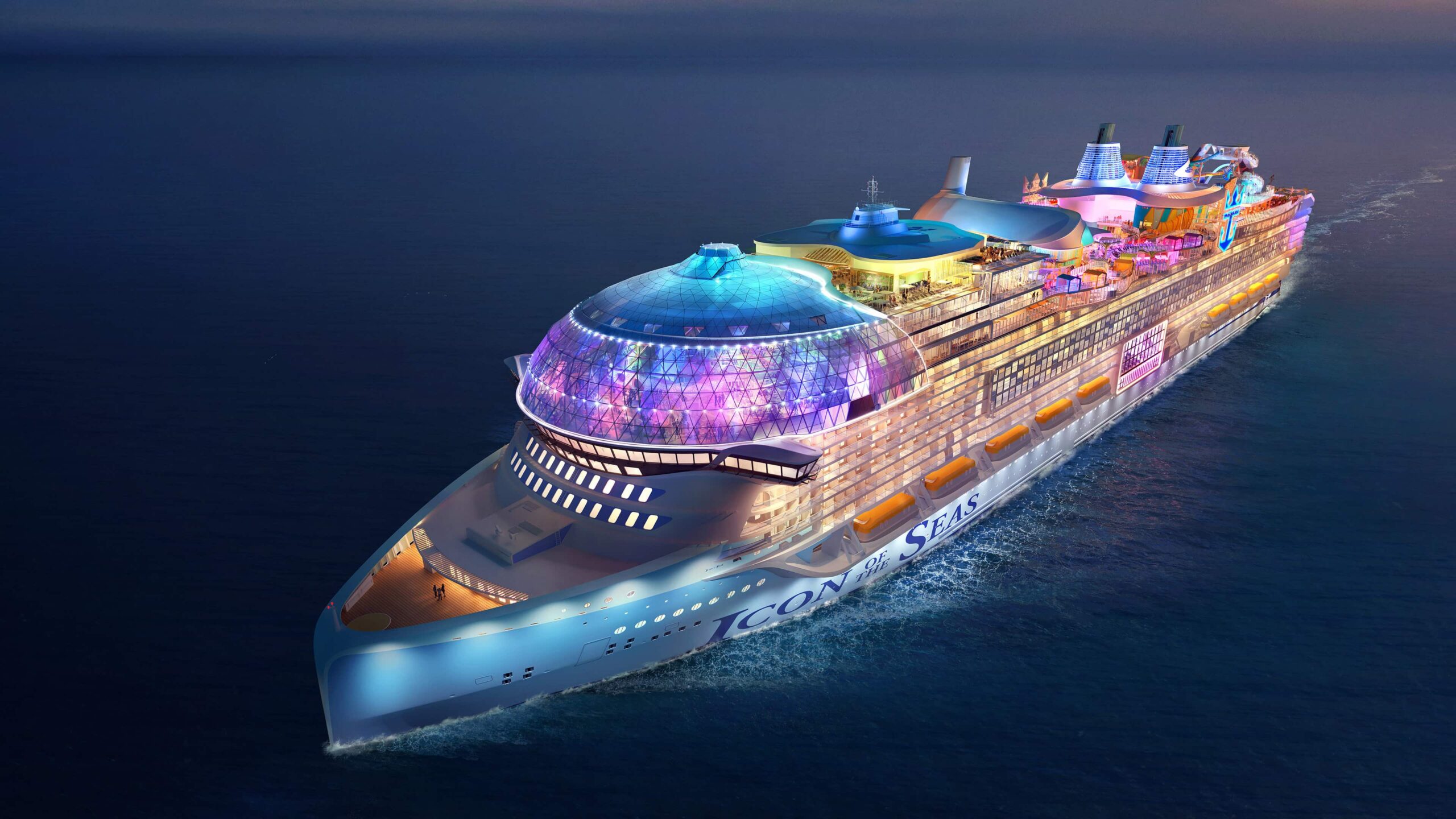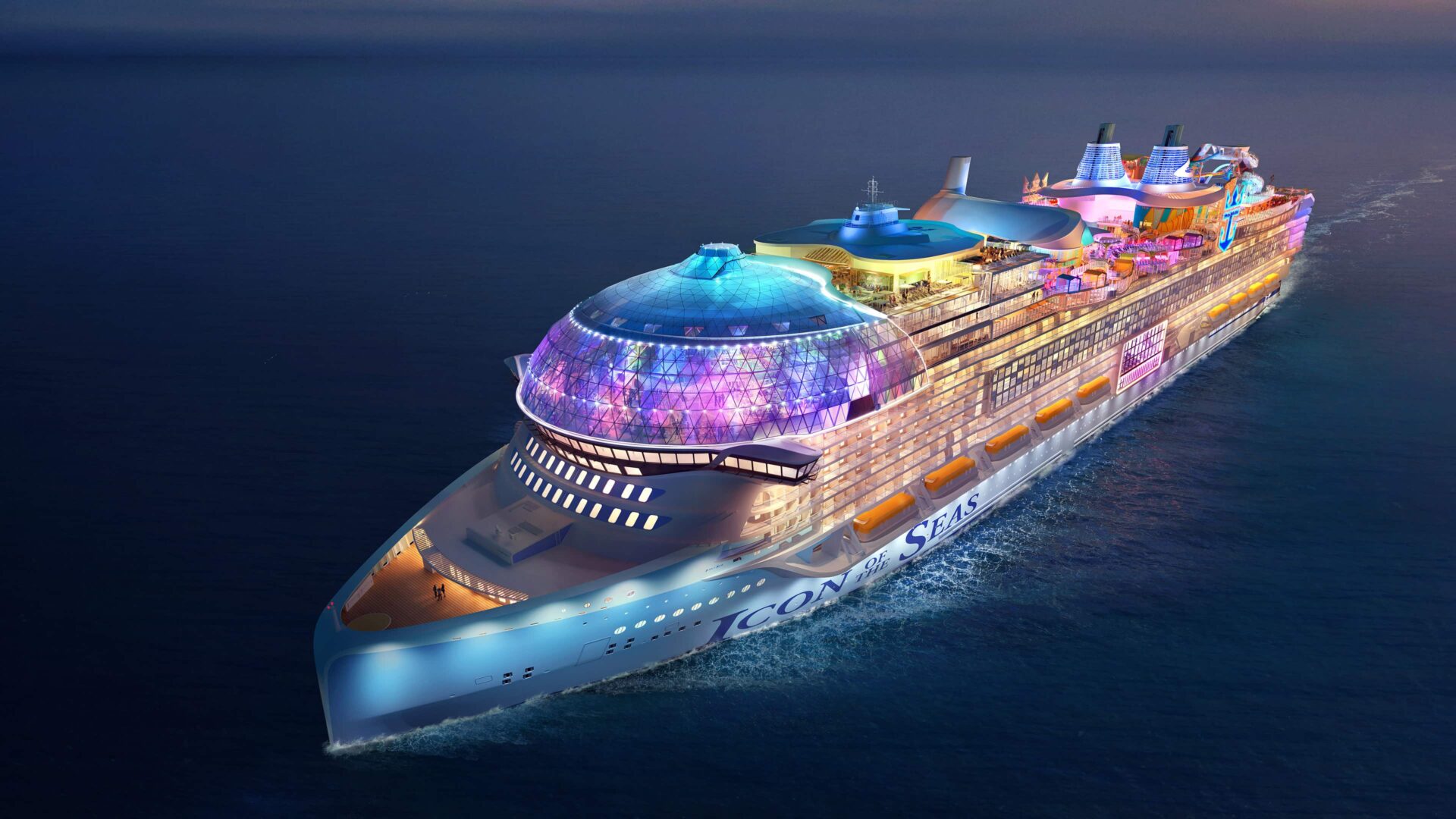
In the aftermath of the pandemic, cruise bookings have soared in recent years, with 27% of cruise passengers in the last two years being first-time customers. This rise in popularity has put the spotlight on decarbonisation on cruise lines. Indeed, traditional fossil-fuelled cruise ships produce far more greenhouse gas emissions than cars or planes: According to one study, Carnival Cruise’s 63 cruise ships emitted 43% more sulphur oxides in 2022 than Europe’s 291 million cars.
This has prompted shipping companies to take action to turn the statistics around. Low-carbon liquid transport fuels, such as advanced biofuels, are emerging as the best alternative.
In January, Royal Caribbean Cruises unveiled the ‘Icon of the Seas’, the world’s largest cruise ship. At first glance, the ship should be an environmental nightmare, due to its 250,800 gross tons and 5,610 passengers + 2,350 crew capacity. However, in line with the company’s goal of zero net emissions by 2050, the ship prioritises sustainability in everything, from an advanced waste and water management system to being the first cruise ship powered by liquefied natural gas (LNG).
LNG produces around 25% less carbon emissions than traditional marine fuels. This reduction in emissions is something to celebrate, but it is even more important in the context of the future of marine fuel. By prioritising low-carbon fuels, Royal Caribbean Cruises has taken an important step towards the transition to biofuels and advanced biofuels. Already last September, Royal Caribbean’s ‘Symphony of the Seas’ became the first ship in the cruise industry to successfully test and use a biofuel blend.
Advanced biofuels are required to achieve an emissions reduction of at least 50 per cent, although many reduce emissions by up to 80 per cent. They will play an important role in decarbonising large transport vehicles that cannot be easily electrified, such as planes, trains and, of course, ships. Indeed, while cruise ships are the maritime vessels with which the average citizen is most familiar, the shipping business is also booming, and ships are only increasing in size. Many major shipping lines have already taken steps to address these rising emissions, such as Maersk, which last year ordered methane-powered ships, but more can be achieved by using advanced biofuels.
Moreover, in the midst of global instability that is causing ships to take different and longer routes, it is important that governments prioritise the use of low-carbon renewable marine fuels.
Especially as the vast majority of the maritime industry has committed to be net zero by 2050. Increased policy support will help maritime vessels, such as cruise ships, transition more quickly to low-carbon fuels, and incentivise the production of low-carbon fuels to help the sector build immunity to global supply shortages and price fluctuations.
